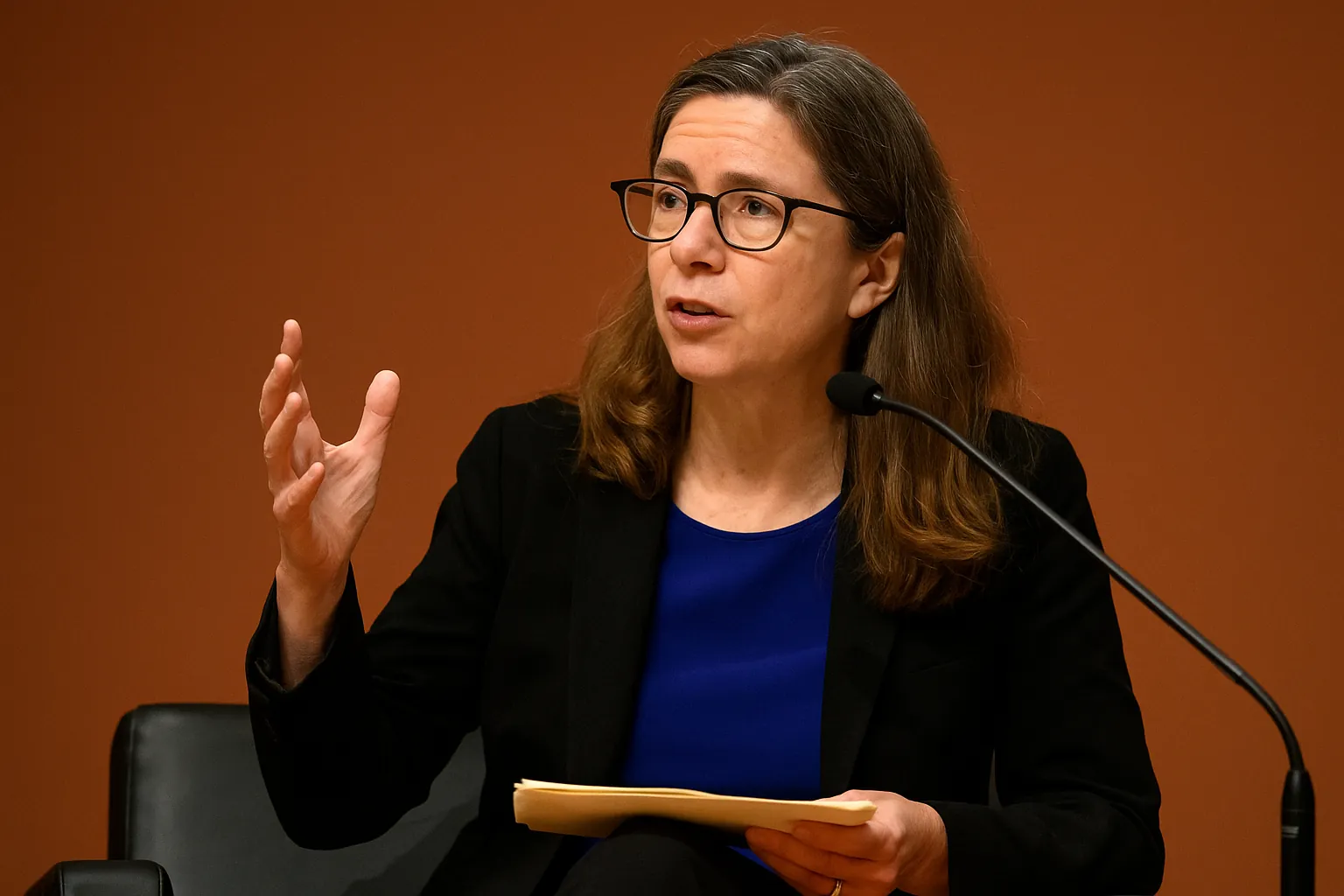When Jill Lepore, the best-selling author and long-time staff writer for The New Yorker, talks about the future of literary journalism, she doesn’t sound alarmist — she sounds wounded. In an age when artificial intelligence can replicate prose, generate essays, and even mimic emotion, Lepore argues that something essential is at stake: the human soul behind storytelling.
Her reflections come as media organizations experiment with AI-driven writing tools, replacing reporters with algorithms trained on billions of human words. Lepore, a historian who has built her career on the intimacy of narrative nonfiction, sees a deeper danger: not just job loss, but the loss of meaning.
“The real risk,” she says, “isn’t that AI will outwrite us. It’s that it will teach us to stop trying.”
Context: a writer in the machine age
Lepore’s new essay collection, The Grammar of Truth, explores how technology is rewriting the rules of authorship. She examines the paradox of a world drowning in information yet starved for insight — where speed replaces reflection, and quantity replaces quality.
The future of literary journalism, she suggests, hinges on how writers and readers respond to the automation of creativity. “There’s a profound difference,” Lepore notes, “between generating text and telling a story. The machine produces words; the writer produces meaning.”
Her warning echoes broader anxieties across the publishing world. News outlets from BuzzFeed to Reuters have tested AI-assisted reporting. Some editors praise efficiency; others worry that nuance — the lifeblood of literary journalism — is being coded out of existence.
“Machines don’t care about ethics, empathy, or the weight of a sentence,” Lepore says. “They can’t mourn, and they can’t remember. All they can do is repeat.”
Oppositional Argument: the illusion of intelligence
The future of literary journalism isn’t simply threatened by AI — it’s haunted by illusion. Algorithms do not think; they calculate. They don’t understand history or context; they predict patterns. To Lepore, calling that “intelligence” is marketing, not philosophy.
She points to a growing cultural laziness: the belief that simulation equals substance. AI models scrape the world’s libraries, but they have no concept of loss, irony, or guilt — the emotional architecture of literature. “The machine can write about love,” Lepore says, “but it can’t feel it. That’s the gap between language and life.”
Critics who hail AI as “democratizing creativity” miss the moral question, she argues. “Democratizing what? The process, or the purpose? Writing isn’t about access — it’s about attention. When you outsource that to a model, you surrender curiosity itself.”
Analytical Breakdown: automation and authenticity
The rapid adoption of AI tools in media exposes an old paradox: we invent technologies to free ourselves, only to become enslaved by them. The printing press liberated knowledge but enabled propaganda. The internet democratized expression but monetized outrage. AI promises efficiency but threatens authorship itself.
Lepore situates this crisis within a longer historical arc. “Every new medium begins as utopia and ends as commerce,” she says. “We thought the web would connect us. It made us compete. Now we think AI will save time — but time is what writing is.”
Her insight hits home for journalists already facing algorithmic deadlines. In newsrooms, automation promises “objective” reporting but often reinforces bias encoded in data. Literary journalism — that hybrid of fact and emotion — cannot survive if editors value speed over soul.
“If you flatten every voice into a dataset,” Lepore warns, “you end up with a world where nothing sounds human anymore.”
The AI temptation: speed without substance
Why do writers fear replacement? Because they see the world rewarding imitation. AI can write coherent op-eds in seconds, but coherence is not conviction. The future of literary journalism depends on a different metric: emotional precision.
Machines excel at prediction, not perspective. They can analyze tone, but not intent. They can rearrange clichés, but not invent metaphors that bleed. As Lepore writes, “Every good sentence risks failure. That’s how it earns its humanity.”
To remove that risk — to industrialize language — is to sterilize the act of writing itself.
Human Perspective: the craft of imperfection
Lepore’s vision of writing is not nostalgic. She embraces technology as a tool, not a replacement. “I use AI like I use a typewriter,” she says. “It helps me type faster — but it doesn’t think for me.”
She recalls drafting her last essay while experimenting with an AI writing assistant. “It was impressive,” she admits. “It finished my paragraphs before I did. But it didn’t understand where I was going. It guessed wrong — every time.”
For Lepore, that imperfection is sacred. “Human writing is messy because human thinking is messy. That’s what makes it real.”
Students at Harvard, where she teaches, increasingly ask whether it’s “cheating” to use AI for assignments. Her answer: “It depends on what you want to learn. If you want to think, it’s a mistake. If you just want to pass, it’s perfect.”
Her reflections reveal a deeper tension: our craving for frictionless creation collides with the essence of art — which thrives on struggle. “Without effort, there is no empathy,” she says. “And without empathy, there is no journalism worth reading.”
Counterarguments: the case for augmentation
Not all thinkers agree with Lepore’s skepticism. Some writers argue that AI could enhance creativity by expanding possibilities, freeing humans from mechanical labor to focus on higher art.
Author and technologist Ted Chiang has suggested that AI might serve as a “mirror,” reflecting human biases so we can confront them. Others see AI as a collaborator — a tool to break writer’s block or simulate voices long silenced by history.
Lepore acknowledges this view but remains wary. “Tools are neutral only in theory. Once money enters the equation, neutrality evaporates.”
The problem, she argues, is not the tool itself but the culture that wields it. In an economy built on attention, even art becomes algorithmic. “We’re teaching machines to write,” she says, “but they’re teaching us to stop feeling.”
Conclusion: the irreplaceable pulse of the human voice
The future of literary journalism may depend less on technology than on moral choice. Lepore believes machines will always fail at one task: translating the inner life — the ache, the humor, the contradiction of being human.
“The human voice,” she says, “isn’t just words. It’s conscience.”
As the boundaries between human and machine blur, that conscience becomes the last frontier. Writers must defend not their jobs, but their essence — the right to interpret the world, not merely record it.
The danger of AI isn’t that it will destroy writing; it’s that it will make us forget why we write.
Lepore leaves us with a final warning and a quiet challenge: “Machines will never understand why a sentence hurts. And if we stop caring about that, then maybe we’ve already become machines ourselves.”
External Links
43 views






